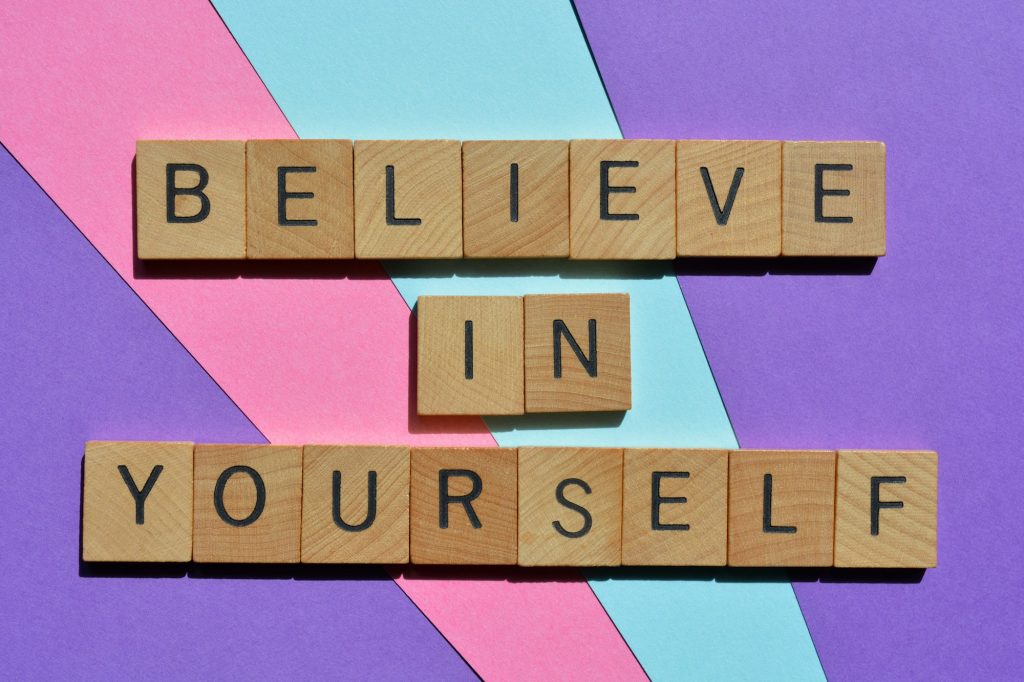In business, one key element separates the truly successful from the rest: self-belief. It may sound cliche but “believe in yourself” is not just a motivational phrase, it is the main ingredient in the recipe for success, especially for those aiming to make their mark as a business manager, leader, or entrepreneur. Successful people often attribute their accomplishments to unwavering confidence in their abilities, even in the face of obstacles. But how exactly does self-belief influence success? What does it mean to believe in yourself, and why is it so vital for achieving long-term success?

How Does Self-Belief Affect Success?
Believing in yourself propels individuals to take risks, remain persistent, and develop resilience in business environments that demand adaptability. In entrepreneurship, many factors can be beyond one’s control. As one deals with market changes, competitor actions, and even economic downturns, maintaining confidence in one’s skills and decisions can create a strong foundation for navigating these challenges.
Studies in positive psychology reveal that self-efficacy, a concept closely linked to self-belief, plays a significant role in achieving professional goals. A person with strong self-belief engages in challenging tasks, perseveres through setbacks, and achieves higher outcomes. This is particularly important in leadership roles where decision-making and innovation are critical.
Why Is Believing in Yourself Essential for Success?
Belief in yourself fosters both mental and emotional resilience. When you believe in your capabilities, you are more likely to push through obstacles, see failures as learning opportunities, and stay focused on your long-term vision. For aspiring leaders and entrepreneurs, this mindset is indispensable. Why? Because the path to success is rarely linear. It is filled with trials that test not only your technical skills but also your mental stamina.
Moreover, self-belief empowers individuals to lead confidently. Whether you’re managing a team or launching a startup, your confidence has a ripple effect. Teams rally behind confident leaders, and clients are more inclined to trust and support businesses led by individuals who project confidence. Thus, believing in yourself does not just impact personal success but also enhances your ability to influence and inspire others.
What Does It Mean to Believe in Yourself?
Believing in yourself means having confidence in your decisions, abilities, and value, even when the outcome is uncertain. It means understanding that setbacks are part of the journey and using them to fuel future successes. For successful people, self-belief isn’t about arrogance or assuming they will never fail. Instead, it’s about maintaining a constructive attitude towards failure and seeing it as a stepping stone to growth.
Famed author J.K. Rowling faced numerous rejections before finally landing a publisher for her Harry Potter series. Her belief in her work, despite the repeated “no’s,” eventually led her to become one of the most successful writers of our time. Similarly, Steve Jobs experienced failure when he was ousted from Apple, a company he co-founded. However, his unwavering belief in his vision and capabilities helped him return to Apple and lead the company to unprecedented heights.
Examples of Successful People Who Harnessed Self-Belief
- Elon Musk
Elon Musk, the visionary behind Tesla and SpaceX, is a prime example of how self-belief can fuel success. From electric cars to space travel, Musk has pursued ventures many deemed impossible. Despite numerous failures, including the near collapse of SpaceX, Musk’s belief in his ability to revolutionize industries drove him to success. His story serves as a testament to the power of self-belief in pushing the boundaries of innovation. - Oprah Winfrey
Oprah’s journey from a difficult childhood to becoming one of the most influential media personalities in history is a testament to the power of self-belief. Winfrey has often spoken about her unshakable belief in her ability to rise above her circumstances. This self-belief allowed her to overcome numerous personal and professional challenges, including being fired from her first television job. Today, she is regarded as a global icon, with a media empire that stands as proof of what believing in oneself can achieve.

Developing Self-Belief: Practical Steps for Aspiring Leaders
If you’re aiming for success in business or leadership, developing self-belief should be a top priority. Here are some strategies to cultivate this essential trait:
- Set Small, Achievable Goals
Success builds on itself. Setting and achieving small goals can boost your confidence and reinforce your belief in your abilities. As you progress, gradually increase the difficulty of your objectives. - Embrace Failure as Part of Growth
Everyone faces setbacks. The key is to view them as learning opportunities rather than as final verdicts on your abilities. Reflect on what you can improve, adjust your approach, and move forward with renewed determination. - Surround Yourself with Supportive Individuals
Your environment plays a crucial role in maintaining self-belief. Seek out mentors, peers, and colleagues who encourage your growth and share your vision. Positive reinforcement from those around you can bolster your confidence when it wavers. - Practice Positive Affirmations
Repeating positive affirmations can reshape your mindset. Affirmations such as “I am capable” or “I can achieve my goals” can gradually strengthen your belief in your abilities.
Success in business, leadership, and entrepreneurship is not solely based on skills or external opportunities; it is deeply rooted in self-belief. By believing in yourself, you open doors to innovation, leadership, and resilience. Like Oprah, Musk, and many other successful individuals, you too can harness the power of self-belief to achieve greatness. Whether you’re starting a business or leading a team, remember: the journey begins with believing in yourself.





































